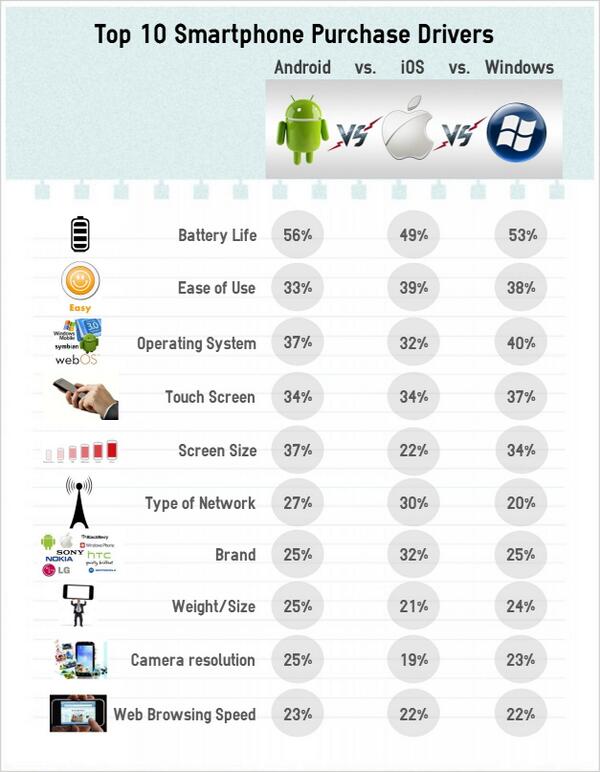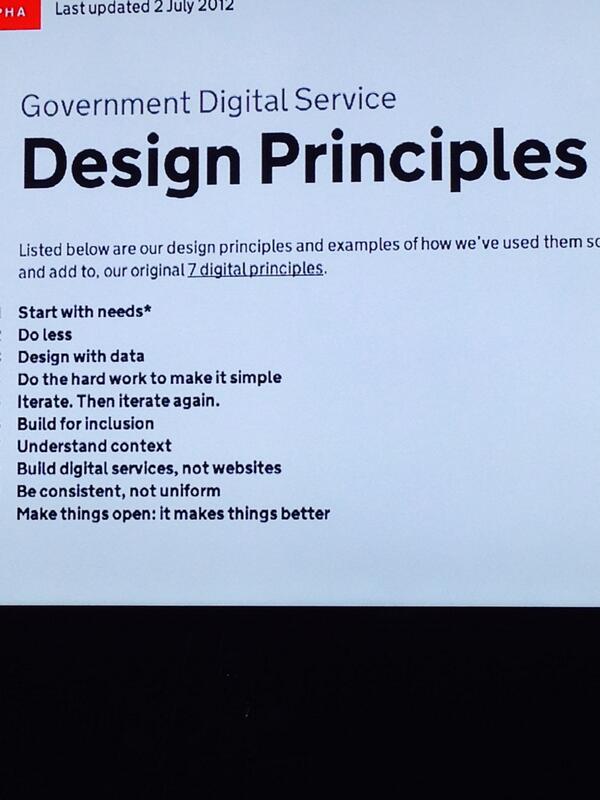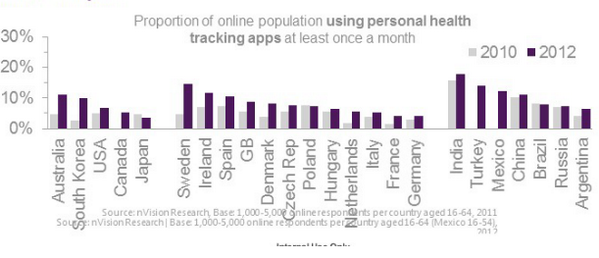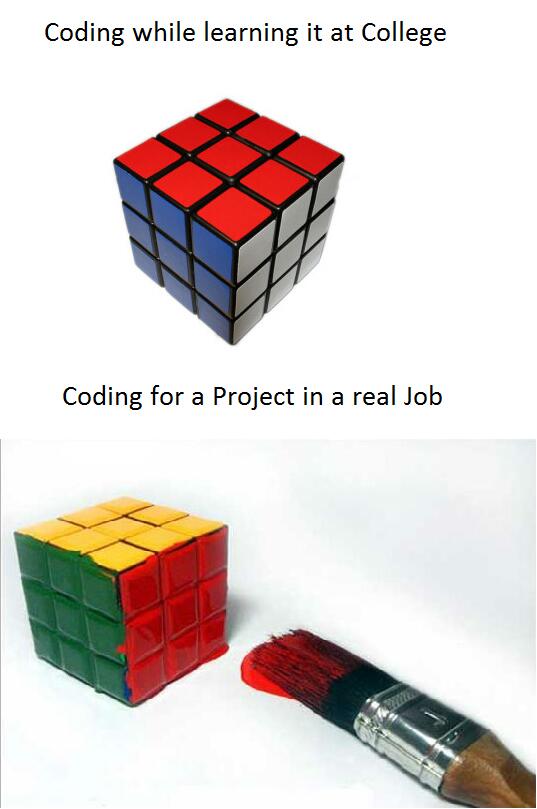Sections
Pick of the week
- “Every minute of the work day is an opportunity for investment for us as developers. During this time, we can make a conscious decision to grow in our craft or instead chose to stagnate. Sadly many developers make the decision to get comfortable with a set of skills and not push forward. Many organizations are filled with these developers.” From a really good post on the top 10 skills developers should invest in learning in 2014. Here they are:
- Know a native mobile platform.
- Know a basic agile development process and toolset.
- Know how to do effective estimations.
- Know JavaScript.
- Know a server side language.
- Know basic HTML and CSS.
- Know how to quickly find information.
- Know how to maintain a project over time.
- Know Git well.
- Know a good tool for tracking tasks and issues.
Smartphones/OEMs
- Analysts are somewhat puzzled about Apple’s acquisition of Beats. Many like The Verge see it as an entirely brand-driven purchase. The two companies have long ties going back to the pre-iTunes days and Beats has some credibility in terms of coolness. Apple may be hoping some of that rubs off in their ongoing quest to turn into a fashion company with higher valuation relative to earnings: “The strategy that Apple is undertaking is to reposition the company away from being valued as simply a very good tech company that also happens to have aspirational brand appeal and instead as the world’s most valuable fashion and lifestyle company.”
- Bloomberg have some interesting charts comparing Apple smartphone launch performance with Samsung’s. Samsung have progressively improved leading to 10 million S5’s being shifted in 25 days. But Apple remains ahead in terms of launch spectaculars with 9 million iPhone 5 shipments in the first 3 days. “Apple is the master of the blockbuster product debut, but Samsung wins by flooding the zone. ” It remains to be seen what impact Samsung’s coup to rebrand Heathrow T5 to Samsung S5 has to sales in the UK.


- IDC online survey of 50k international smartphone users found battery life to be the key purchase driver which seems a little odd because typically they all last a day on full charge. According to The Telegraph, we should “stop moaning and get over it”.

- “The top three smartphone platforms now feature fully functional personal assistants”. Engadget “interviewed” them to compare features.
- OnePlus is another rising Chinese OEM. Their flagship Android device, the One, is a formidable smartphone built on the same Qualcomm Snapdragon 801 chipset used in the Galaxy S5 and Xperia Z2. It has 3GB RAM, 13MP main camera, 5MP front-facing camera and runs the CyanogenMod variant of Android 4.4.2. Engadget love it: “For $300, no other phone comes close to what the OnePlus One offers. Not only does it look and feel like a premium device, but it also comes with specs similar to what you’d find in a flagship smartphone. If you want a high-end phone on a budget, look no further.”

- A Nokia N9 smartphone camera can be used to create a truly random number generator based on the stochastic process of measuring electrons arriving at the camera sensor:

Google/Android/Apps
- Google’s Silver program continues to generate comment with The Register suggesting that “the cost of defying Google has just risen substantially” and a rumour emerging that Google Silver will come with a special Google Experience Launcher that will take the UI in a different direction to standard AOSP.
- Meanwhile Mathias Dopfner the CEO of digital media giant AxelSpringer in Germany has written an open letter to Google expressing genuine concern about the degree of power they have. Others have picked up on the letter in the starkest possible language: “there is a dawning awareness that Google is forging a new kingdom on the strength of a different kind of power –– ubiquitous, hidden, and unaccountable. If successful, the dominion of this kingdom will exceed anything the world has known. The chilling irony is that we’ve become dependent on the Internet to enhance our lives, but the very tools we use there threaten to remake society in ways that we do not understand and have not chosen.” Also in Germany, a group of activists created a spoof Google Nest site so good it fooled many.
- The sharing of personal data across Google Services such as the integration of Calendar data within Google Now seems to be a particular concern for many. You can increasingly go off-grid and run your own cloud. But even if you avoid direct use of Google Services, they could have as much as 50% of your email anyway and are apparently trialling a new layout for Gmail to make it even more indispensable.
- Google did, however, experience a major setback this week losing an important legal appeal with Oracle in the US over whether APIs are subject to copyright – the Appeals Court ruled that they are. The specific case relates to Android’s copying of Java APIs as part of Dalvik but the wider implications across the tech industry are huge. The EFF issued a robust response. Some are speculating that this was the underlying reason for cloud players avoiding over copying of AWS APIs. They also suffered a setback in relation to the right to be forgotten.
- The case highlighted a growing disparity between the importance of software technology in society and the its representation in legislature and politics. The US Senate and House of Representatives is packed with lawyers and business people with 5 engineers and scientists in total across both:

Asia
- Business Insider posted an article on the rise of Alibaba who announced the launch of their first Aliyun data centre outside mainland China in Hong Kong.
- Xiaomi “to release a tablet soon” as Canalys reports they have broken into the global smartphone top 10 in terms of shipments ousting HTC. Underlining the growing strength of Chinese OEMs five of the top 10 were Chinese companies: “Huawei (third), Lenovo (fourth), Xiaomi (sixth), Yulong (eighth) and ZTE (ninth)” with Samung and Apple 1 and 2 respectively.
- Interesting HBR report on the profound impact outsourcing of work to robots or “botsourcing” could have in the future: ” This new wave of bringing production back home through robotics automation may be the single biggest disruptive threat to India’s $118 billion information technology industry. The more processes can be automated, the less it makes sense to outsource activities to countries where labor is less expensive.”
Cars
- The interface of the steering wheel on a Sauber F1 car has to be seen to be believed. It even comes it’s own user guide.

Cloud/Infrastructure/Security
- Many commentators seem to think of Apple as a product company that doesn’t get cloud computing. @asymco reflects that 3 years after launching iCloud, some 450 million iCloud accounts have been created. Hardly sounds like a failure of understanding.
- IS departments could have more than just frustrated customers to deal with in future if they fail to address security holes with prompt updates.
Services
- Box have signed a huge corporate IT partnership with GE. Aaron Levie’s blog article on it is worth reading carefully. This could in time be seen in time as a pivotal moment for cloud within Enterprise IT. As Levie put it, “The traditional model of IT simply doesn’t work in this new world.”
- Microservices are a key architectural element of the new Enterprise landscape and offer the promise of greater flexibility and separation of service concerns and deployment. The old Enterprise world tends to focus on SOA (Services Oriented Architecture) built on ESB (Enterprise Service Bus) technology which can all too easily implemented in a way that it becomes a new single point of failure across the whole business: “most of the time that we come across something called “SOA” it’s significantly different to the style we’re describing here, usually due to a focus on ESBs used to integrate monolithic applications. In particular we have seen so many botched implementations of service orientation – from the tendency to hide complexity away in ESB’s [7], to failed multi-year initiatives that cost millions and deliver no value, to centralised governance models that actively inhibit change, that it is sometimes difficult to see past these problems.”
- The UK Government Digital Service design principles captured in outline here appear well aligned with a microservices oriented architecture (MOA ?) mindset:

- Microsoft continue to extend their reach cross-platform with improvements to Lync on Android and the addition of Android and iOS device management features.
Big Data
- The analytics software industry seems ripe for consolidation and acquisition.
- Interesting post on how algorithms will increasingly shape culture in society as they become omnipresent arbiters of taste across all sorts of different categories resulting in the rise of “algorithmic culture”: “algorithmic systems [will] introduce you to cultural goods that you might not have encountered otherwise. Today, culture may only be as good as its algorithms.”
Wearables/InternetOfThings
- Samsung appear to be moving their entire Gear range from Android to Tizen.
- Kairos have released an interesting take on a premium smartwatch available for pre-order at $499. It features a transparent OLED glass display onto which notifications can be posted via Bluetooth LE connection with a smartphone.

- Myo “gesture controlled armband” by Thalmic Labs is due to ship mid-2014 for $149. They have an impressive investor list. “The Myo armband lets you use the electrical activity in your muscles to wirelessly control your computer, phone, and other favorite digital technologies.”
- Interesting data showing the proportion of online population who use personal health tracking apps at least once a month plus relative growth in the last two years. India is an interesting outlier.

- Quitbit is a Kickstarter “smart lighter” that tracks how many cigarettes you’ve smoked in a day. Interesting because its pitch is to reduce negative behaviour rather than promote positive ones which is what a lot of health wearable propositions focus on.

Python
- Analysis of average pull requests per GitHub repo by language suggests that “if you want to choose a programming language for a project that has a large, active and helpful community of developers behind it, you could do a lot worse than Python.”

Gaming
- Appropriately enough for the closest thing to Rock n Roll in gaming, @notch the creator of Minecraft is profiled by Rolling Stone.
- Minecraft is a genuine outlier in gaming. The reality is that free to play (F2P) is a real lottery with “66 percent [of mobile games] never played beyond the first 24 hours“.
Fun
- This Douglas Coupland tweet will be only too familiar to many.
